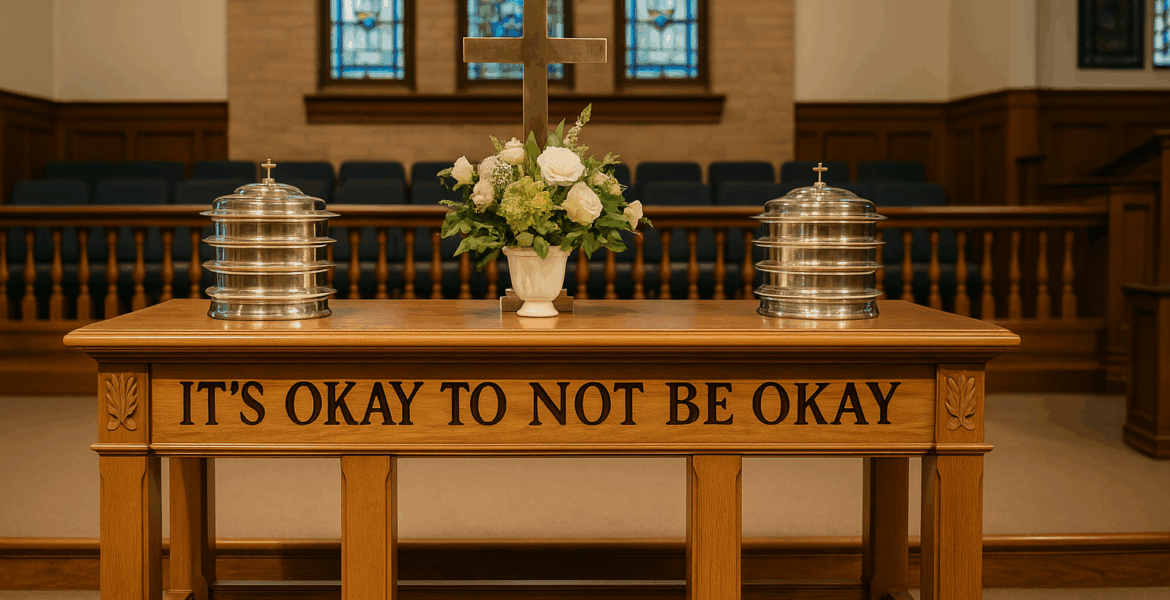Word Count: 395 – Est Reading Time: <2 Minutes
What’s Up:
“It’s okay to not be okay” should be the rallying cry of the church … but it’s more like a slogan we print in cursive and promptly ignore.
So What:
We’ve normalized spiritual bypassing: the kind that shrugs off real pain with a thin Jesus-smile and a prayer. (“I’ve had a rough week, but it’s okay. Jesus is with me!”) But the early church didn’t do that. And we shouldn’t either.
The Point Is:
Stop Faking Fine
People walk into church broken. Telling them to “trust Jesus and smile anyway” isn’t spiritual maturity. It’s spiritual malpractice.
Name the Hurt
Job’s friends didn’t get it right. What he really needed was for the to just sit down with him in the dust and ashes. What if we gave people a ministry of our presence?
Be the Net, Not Just the Cross
Faith communities should be safety nets. The Amish and Mormons already get this … you lose your job Friday, someone helps you by Monday. Why not us? At best, most churches say, “We’ll pray for you” and then do little else.
Church Is for Us, Too
Too often, churches create benevolence ministries for outsiders and ignore the bleeding people inside. The New Testament Church focused on aid to the members and leveraged benevolence as evangelism. So should we.
And … ?
The epidemic of spiritual bypass in the church is gutting our credibility. People walk in looking for empathy and get bumper sticker theology instead. We’re great at providing food drives and school supplies for the poor across town, but if someone on the worship team gets laid off, we offer a prayer and then expect them to suck it up and keep singing.
That isn’t how it was in Acts. The early church shared everything. They carried each other’s burdens: financial, emotional, spiritual. If someone suffered, they all felt it. And if someone rejoiced, they all showed up. We’ve traded shared burdens for programmed benevolence. Maybe that’s why the church today limps where the early church ran. We can get our fire back … but only if we become the kind of people who sit in the ashes with the hurting and say, “You’re not alone.”
Action!
This week, reach out to one church member in pain … not to fix, but to sit with. No advice. No platitudes. Just presence.


